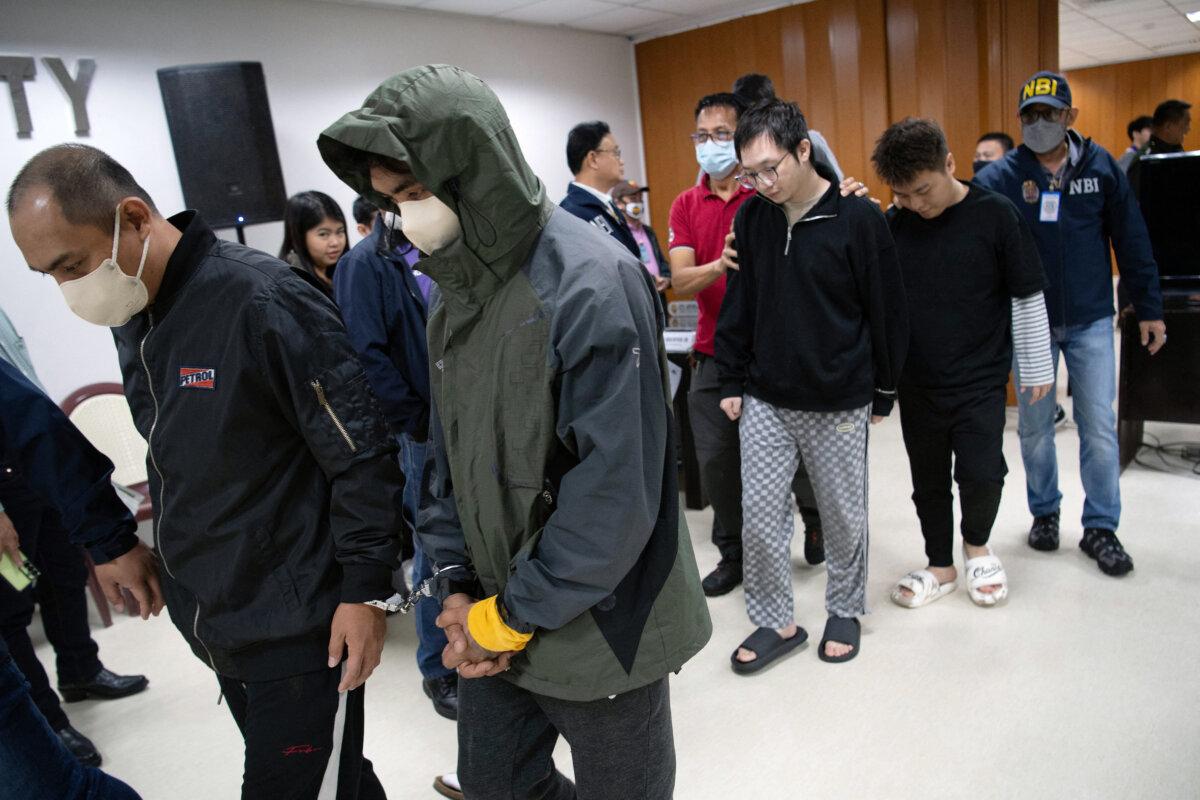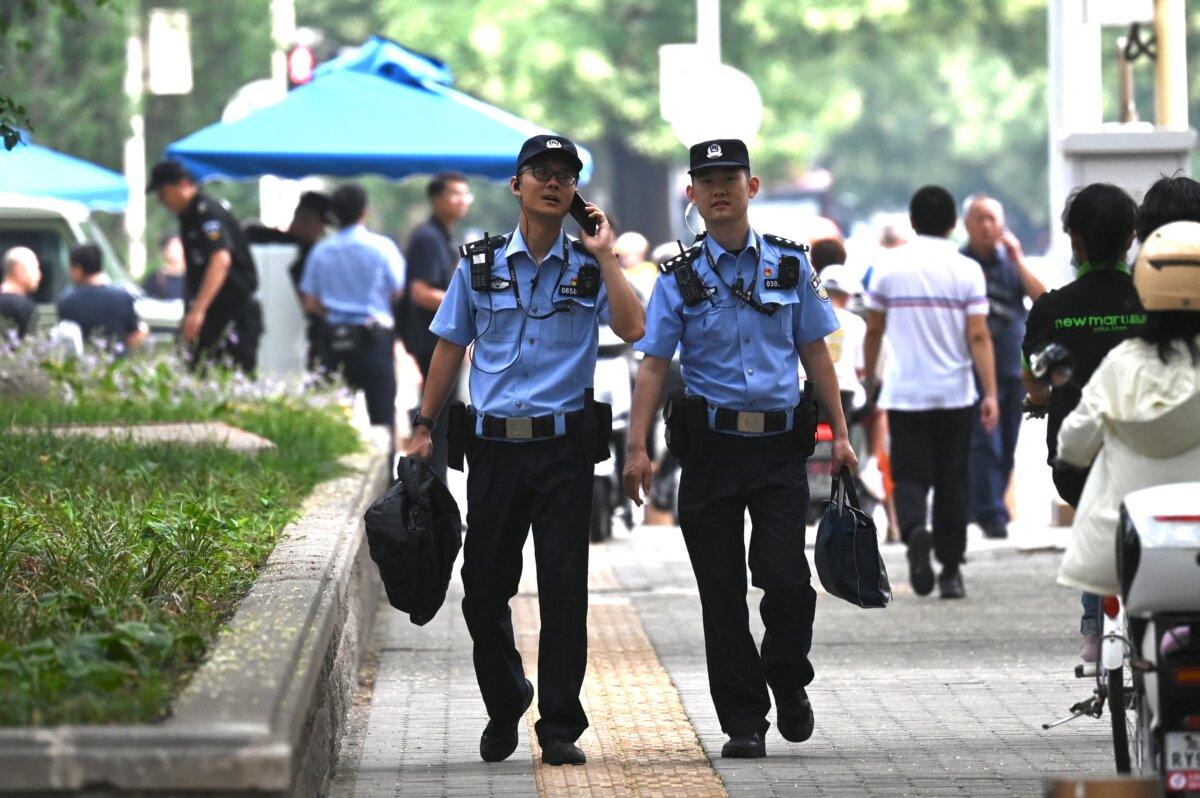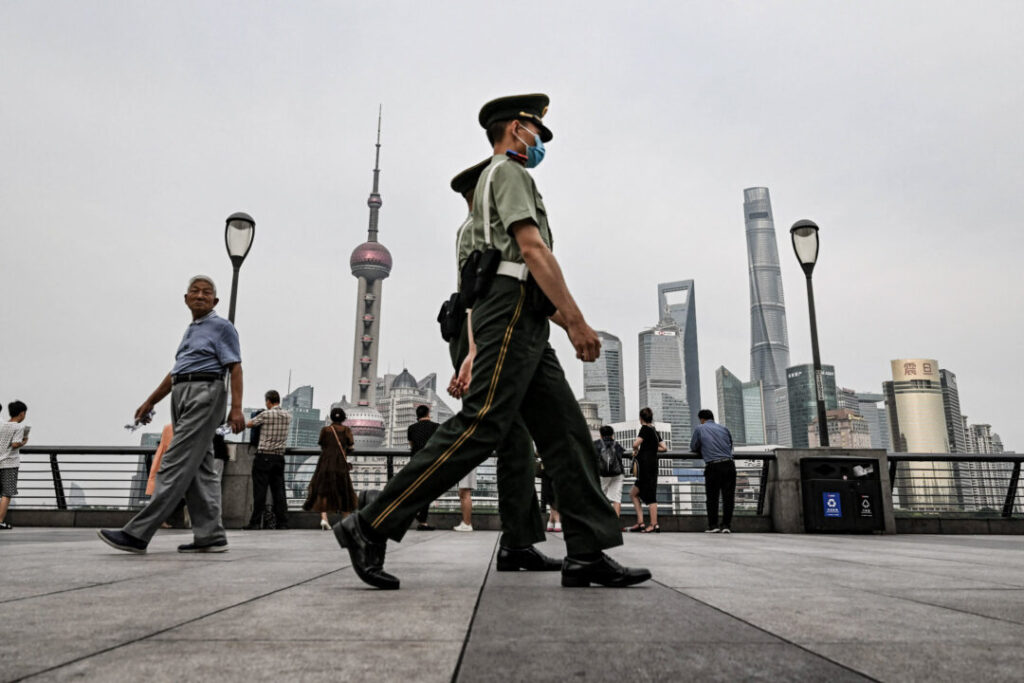Observers said the administration’s spy-catch propaganda’s purpose is to shift focus from the current internal political and economic crises.
The Chinese Communist regime’s Ministry of National Security has listed five types of foreign “spy” and urged Chinese people to point them out and report them to the authorities.
Analysts said the administration’s move aims to change the public focus from China’s political and economic crisis.
The ministry published an article on WeChat’s official social media account on May 25, entitled “Publishing Many Faces of Spies,” listing five identities used by foreign spies. This article has been reposted by major Chinese media outlets.
Five types include “detectives who don’t investigate, scholars who don’t research, businessmen who don’t do business, tourists who don’t tourism, lovers who don’t care.”
The ministry defines “detectives who don’t investigate” as “foreign spies using detective companies and consulting companies as covers,” and seeks sensitive information “under the pretext of providing and providing paid consultations.”
The ministry described it as people who frequently visit universities and research institutions in China “under the banner of academic exchange and scientific research cooperation,” and frequently visit “scholars” and research institutions to gather confidential information and core technologies.
“Businessmen are not doing business” refers to “pretending as an influential businessman, using investment and cooperation guises, and using money and emotional seduction to carry out asylum.”
“Tourists are not tourists” refers to “foreign agents who carry out surveying and on-site search activities by visiting tourists, visiting relatives and friends, and guiding their own or staff members to conduct surveying and on-site search activities near military facilities or sensitive areas.”
Regarding “lovers who don’t care,” the ministry said foreign spies are on online dating to approach Chinese students studying abroad by building romantic relationships with them.
In addition to five categories, the ministry said, “foreign spies can disguise journalists, visa officers, staff of non-governmental organizations, and other identities.”
The ministry ordered the Chinese people to be “watched” and called for these so-called foreign spies and “to report suspicious activities in a timely manner to the national security agencies.”
Lai Zianping, a former Beijing lawyer and president of the Canadian-based Democratic China Federation, told the Epoch Times on May 26 that he would do exactly what the Chinese Communist regime itself warned in articles around the world.
“It’s really ubiquitous that a spy (the Chinese regime) sends it to all parts of the world,” Lai said. Agents working in the Chinese administration include “including those employed in China and locally, those employed by both China and Westerners, and those from all kinds of different occupations.”
There are increasing numbers of Chinese foreigners and students steal information and spy on the Chinese regime in the West, particularly around the high-tech sector and military facilities.
“So Chinese authorities believe that the whole world, including those Democrats, is acting in the same way as China’s fraudulent regime,” he said.

The Chinese nationals (background 3rd R and second R) and their suspicious Filipino accomplices (L and second L) will be escorted from the room by National Investigation Agency (NBI) agents after a press conference at the NBI office held in Manila on February 25, 2025. Ted Aljibe/AFP
Lai said the ruling Chinese Communist Party (CCP) suspects that everyone from outside is a spy and forces all Chinese citizens to work for the party to catch so-called spies in order to maintain authoritarian rules.
He said the CCP’s National Security Department’s aim is to publish such articles, which asks all Chinese to look for so-called foreign spies.
The Spy Catch “has been left with mutual suspicion, mutual condemnation, and everyone feels they are in danger,” Lai said.

Police officers patrol outside the Jingxi hotel in Beijing on July 15th, 2024. Greg Baker/AFP via Getty Images
It reminds me of the Mao era
The Chinese administration is not actually trying to prevent spying, but it is trying to create fear in Chinese society. Sheng Xue, the Vice-Chairman of the Canadian-based Chinese Democrat and Chinese-Canadian author, describes the article in the Chinese province.
“One of the most important principles of the CCP rules is based on fear, and so they are essentially terrorist rules, so they are trying to intensify this fear in society,” she told the Epoch Times on May 26.
She said the ministry’s articles include journalists, tourists, businessmen, academics, even foreign enthusiasts, NGOs and many other groups.
“In Mao Zedong’s days, they always did this,” she said.
Mao Zedong was the leader of China’s Communist Party from 1949 until his death in 1976. During Mao’s time, the CCP launched a massive back-to-back political movement to lock up the country, oppose the foreign, western or democratic, to monitor and report Chinese people from the Chinese, to bias each other among their families, and to hunt down their enemies.
Shen said communist China is currently very isolated internationally. This is because other countries remain dominant due to the aggressive expansion of political and economic impacts.
“The CCP definitely feels such pressure, so they try to connect the Chinese with it and treat the outside world as their enemies,” she said.
Another reason for spy-catching propaganda, she said, is that CCP is trying to change the focus of people from the current political and economic crisis.
“CCPs need to distract themselves from serious internal economic recession, people’s complaints, social unrest, youth unemployment, capital outflow and other issues,” she said. “So it always uses what is called national security or what is called people’s security, setting targets that are foreign hostile forces, and shifting social conflicts outward.”
Luo Ya and Xia Song contributed to this report.



